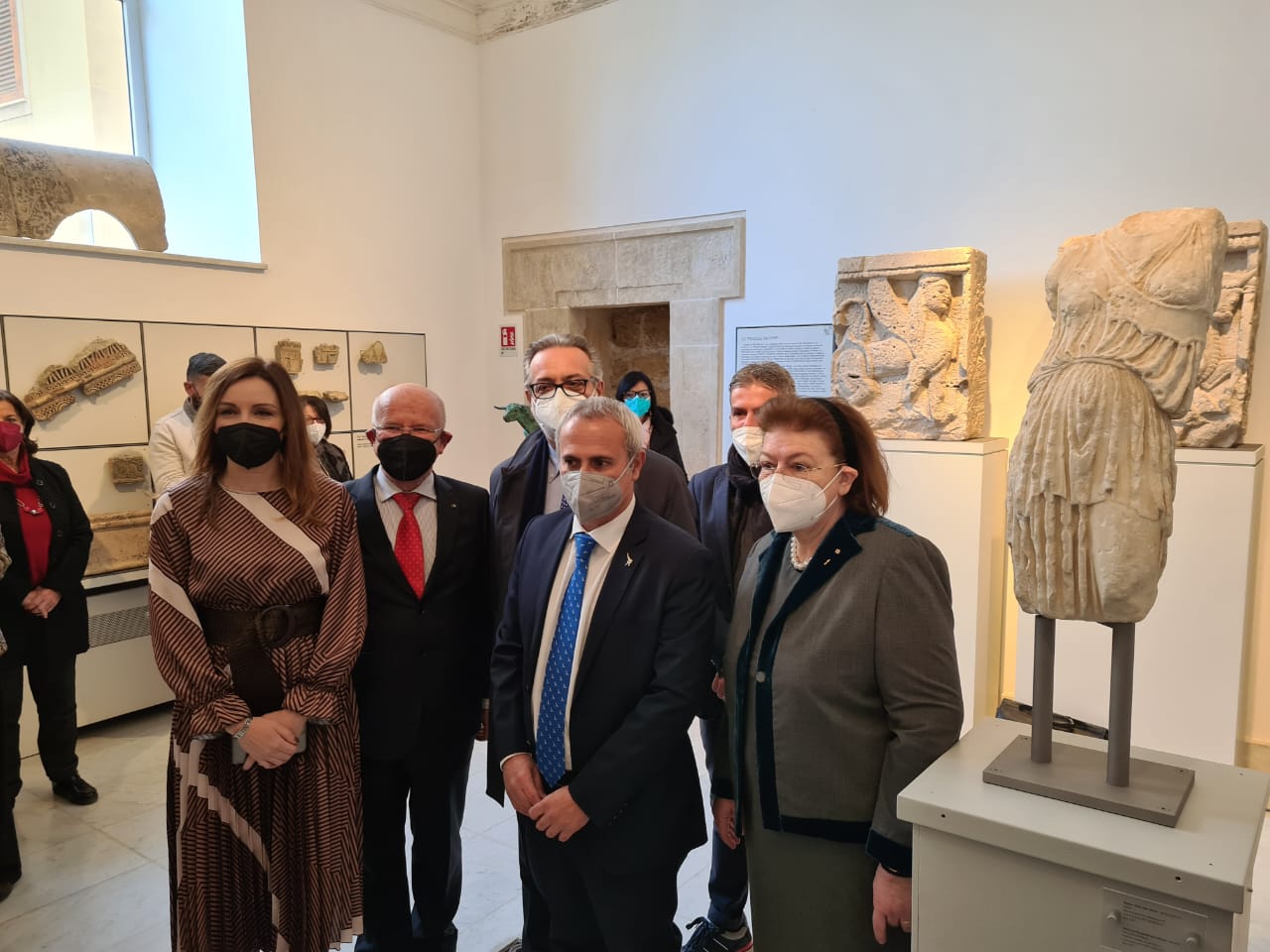Wednesday 09 February 2022, was a great day in Sicilian and Greek relations with the arrival from the Acropolis Museum in Athens, the statue of the goddess Athena (Acr. 3027, second half of the fifth century BC.) to be exhibited in the regional museum, the Museo Archeologico Regionale "Antonino Salinas", Palermo.
The official delivery took place, in the morning, in the presence of Minister of Culture and Sport of the Hellenic Republic, Lina Mendoni, and the director of the Acropolis Museum, Nikolaos Stampolidis, who entrusted this precious statue of the goddess Athena in the hands of the Regional Councillor of Cultural Heritage Alberto Samonà and the director of the Salinas museum, Caterina Greco. Also present were the Italian Deputy Minister for Culture Culture, Lucia Borgonzoni and Professor Louis Godart, President of the Italian Committee for the reunification of the Parthenon Marbles.
The arrival in Palermo of the statue of Athena was possible following the agreement, encouraged by Alberto Samonà and signed between the two museums under Italian law, according to which Sicily granted the Acropolis Museum the fragment of the Frieze of the Parthenon that belonged to the English consul Robert Fagan and that, after being sold in 1820, was kept in the Museo Archeologico Regionale "Antonino Salinas".
It is the first time that the Acropolis Museum offers Sicily, for a long-term exhibition, an original testimony of Athenian history. Thanks to the agreement between the two museums, but more generally, Sicily and Greece, this heralds the start of a great path for cultural collaboration.
The presentation of the statue took place on Wednesday 09 February 2022, “International Greek Language Day”, a day celebrating the Greek language and culture.
At the end of the four years, the Acropolis Museum will send to Palermoa geometric amphora of the early eighth century BC.
Associated Press in the Washington Post also reports: 'Greece hopes the loan of the small Italian fragment — part of a 160-meter-long (520-foot) frieze that ran around the outer walls of the Parthenon — will boost its campaign for the return from London of the British Museum’s part of the Parthenon Sculptures. “Greece recognizes no rights of ownership or possession” to the sculptures in the British Museum, commented Greek Culture Minister Lina Mendoni who travelled to Palermo’s A. Salinas Archaeological Museum for the handover. “(The deal with Italy) indicates the path that London can follow”, concludes Mendoni.


The statue of the goddess Athena which has been lent from the Acropolis Museum to the Museo Archeologico Regionale "Antonino Salinas", Palermo. The official ceremony held at the museum on Wednesday 09 February, pictured from left to right:Italian Deputy Minister for Culture, Lucia Borgonzoni, Professor Louis Godart, President of the Italian Committee for the reunification of the Parthenon Marbles with Alberto Samonà the Councillor for Cultural Heritage and Identity of the Sicilian Region as well as Director of the Salinas Museum, and Minister of Culture and Sport of the Hellenic Republic, Lina Mendoni,